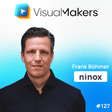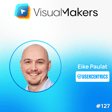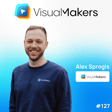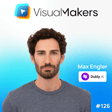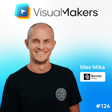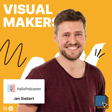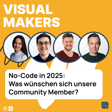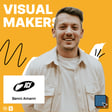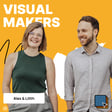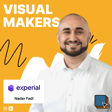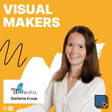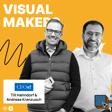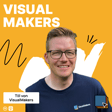
#125 - a Developer’s View on the No-Code Industry - with Alex from Plasmic
In this episode I had the pleasure to speak with Alex Noel, Developer Relations Engineer at Plasmic - a visual development Plattform.
Alex’ background as a full-stack Developer made me wonder: why and how did he start to work for a visual development tool?
We talked about AI and its place in the No-Code space, as well as the usefulness of the term “no-code” itself. Alex also shared his opinion about the importance of open source projects and his top 10 criteria for a good no-code tool.
Relevant links:
Plasmic’s website: https://www.plasmic.app/
Alex’ LinkedIn: https://www.linkedin.com/in/alexnoelee/
Pasmic is hiring! - https://www.plasmic.app/careers
**////////// Gefällt dir unser VisualMakers Content? Werde selbst zum VisualMaker mit einem unserer vielen kostenlosen Kurse. Starte jetzt durch und werde No-Code Profi https://www.visualmakers.de/academy**
**////////// Folge uns auf:
LinkedIn: https://bit.ly/3SfL6oO
Youtube: https://bit.ly/3OF5jBj
Instagram: https://bit.ly/3cMYH6N
Slack: https://bit.ly/vm-slack**
**////////// Jetzt Newsletter abonnieren und keine No-Code News mehr verpassen! https://bit.ly/3cMYNeF**
